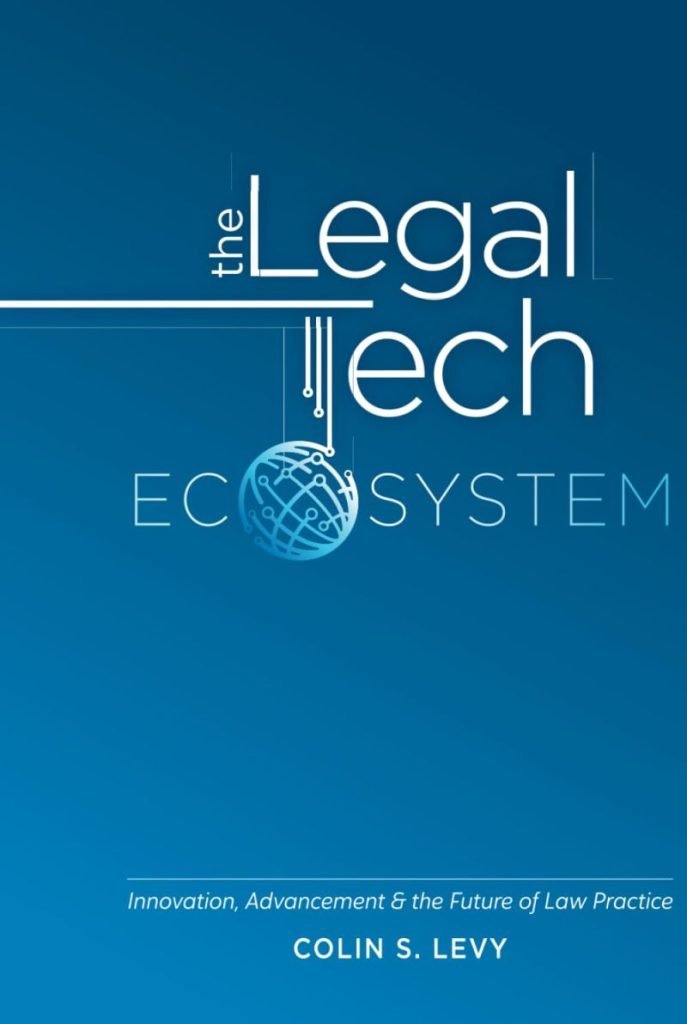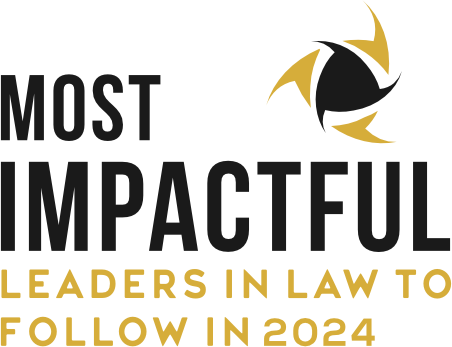With a career dedicated to demystifying the complexities of legal technology for professionals and laypeople alike, Colin S Levy has carved out a niche that bridges the gap between traditional legal practice and cutting-edge technological advancements.
Colin’s latest book, “The Legal Tech Ecosystem: Innovation, Advancement & the Future of Law Practice,” offers a comprehensive look into the future of legal services, underscored by his belief in the power of authenticity and human connection.
In this exclusive interview, Colin S Levy shares his journey of integrating authenticity into leadership, the inspiration behind his book, and the key themes that he believes will shape the future of legal practice.
What according to you makes one impactful? How do you integrate the same thought into your leadership?
I view impact through the lens of authenticity. Humans want to be heard, they want to be listened to, they want to be seen. This all boils down to one powerful thing – a recognition of our inherent humanity. Accordingly, I see myself and my content as both successful and as impactful if I see that what I am doing resonates through the comments and reception that I or the content I create receives. I have long sought to be simply who I am – imperfections and all. I do not shy away from admitting weakness, from sharing things that make me feel uncomfortable or that give me pause. I have noticed that these imperfections are not mine alone to bear but are shared by others. This brings people together – the knowledge of not being alone and sharing things.
Can you provide an overview of your new book, “The Legal Tech Ecosystem: Innovation, Advancement & the Future of Law Practice,” and the key themes it explores regarding the intersection of law and emerging technologies?
The intent of the book is to provide the reader with an accessible non-technical introduction to the world of legal tech. It features numerous leading innovators and creators in the space to show the reader what has and is being done with technology to help lawyers, legal professionals, and those in needs of legal services. The book explores several key themes that underlie legal tech including A) technology alone is not enough – it needs to be aligned with the business and those who will be using it; B) the breadth and depth of the space; and C) The interdependence of people, process, and tech and how each can influence and impact the others.

“The Legal Tech Ecosystem” emphasizes that technology alone is not sufficient; legal departments must undergo a fundamental digital transformation. Can you discuss the key aspects of this transformation, including rethinking structures, processes, and approaches?
The evolving landscape of technology is becoming a catalyst for fundamental changes in organizational structures, particularly highlighting the limitations and inefficiencies of rigid, traditional business hierarchies and silos. As technology continues to advance, it is becoming increasingly clear that businesses need to transition towards more flexible, adaptive models that prioritize cross-functional collaboration and leverage technological innovations. This transformation involves a comprehensive integration of technological tools into business processes, aiming to enhance efficiency through streamlining and automation. It’s not just about the adoption of new tools; it also necessitates a cultural shift within organizations, where there is an open embrace of learning, experimentation, and adaptability over clinging to longstanding traditions and historical ways of working.
Furthermore, this shift underscores the importance of embracing Generative AI, a technology that is rapidly reshaping the business landscape. Generative AI is altering how operations are conducted, influencing decision-making processes, and redefining the skill sets required for the workforce. By integrating Generative AI into their operations, businesses can unlock new levels of creativity, innovation, and efficiency, ensuring they remain competitive in a rapidly evolving market. This means being proactive in understanding the capabilities and applications of Generative AI, and how it can be leveraged to create value, solve complex problems, and meet emerging business needs. Ultimately, the call to action for businesses is clear: to thrive in the digital age, they must be willing to rethink their structures, embrace technological advancements, and foster a culture that is open to change and innovation.
As a leading voice in legal technology, what effective solutions do you see emerging to address the challenges faced by legal professionals in the current environment?
Technology should be making your job easier and making you more productive. Tools that can make those time-consuming tasks you need to do each day less time-consuming are likely to have the greatest impact. For example, if you are tasked with managing outside counsel spend, there are tools to help you do that. Same with legal research or drafting documents. I would be remiss if I didn’t mention that Generative AI has and will continue to make each the tools that can help do them more powerful.
What proactive steps can legal professionals take to stay ahead of the curve in the era of Web 3.0?
For those who may not know what Web 3.0 is, it is the next evolution of the internet based on decentralization, higher interactivity, and artificial intelligence. As for being proactive when it comes to Web 3.0, the first step is to learn about it, what it is, its current state, and uses cases for it. One of the key voices I’d suggest turning to learn is my friend Mitch Jackson.
Finally, what does the future look like for you, both professionally and personally? What are you most excited about?
The future for me is exciting. I see it being more ever more involved in the legal tech community with the goal of informing and inspiring others. I potentially could publish another book or two as things evolve. Personally, I am excited to be learning more and expanding my perspective and worldview. I am, of course, most excited about the rise of Generative Artificial Intelligence and the tremendous potential it holds for so much of society.











